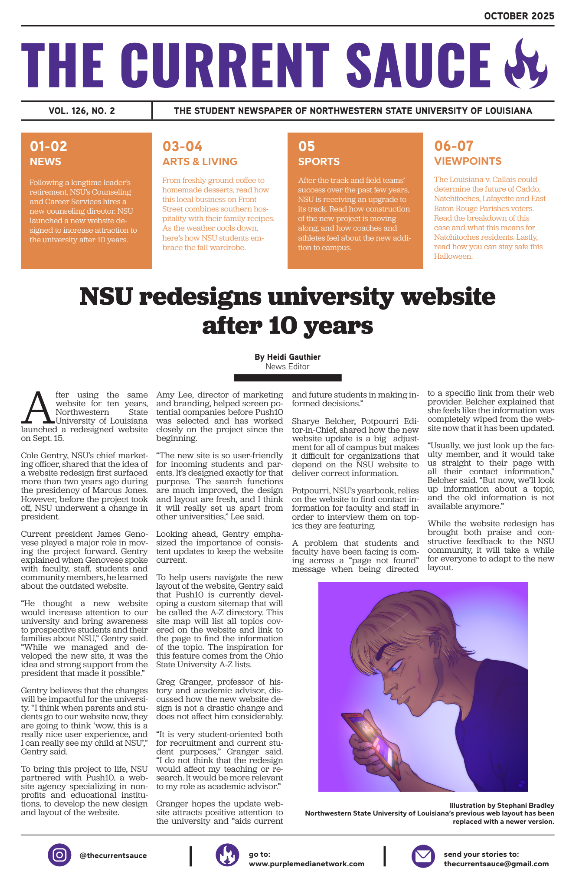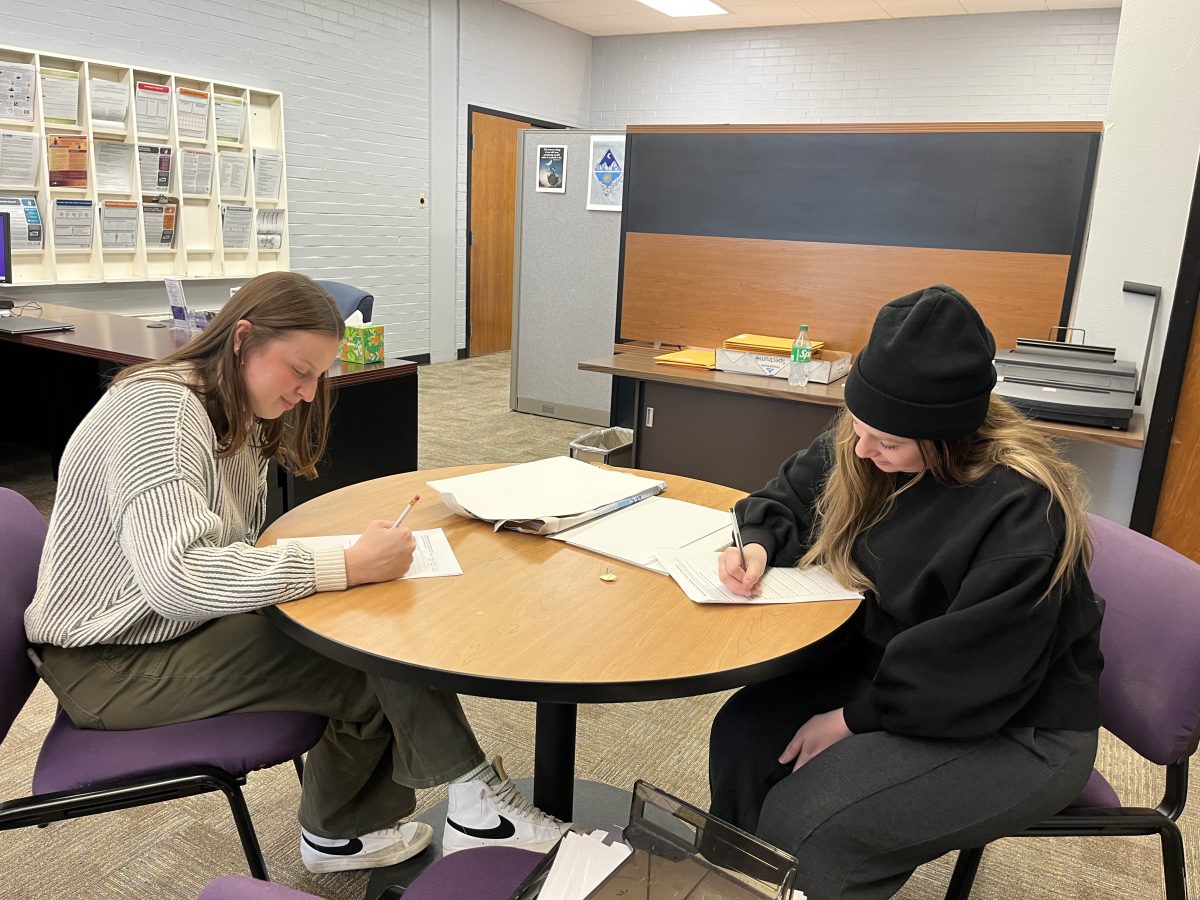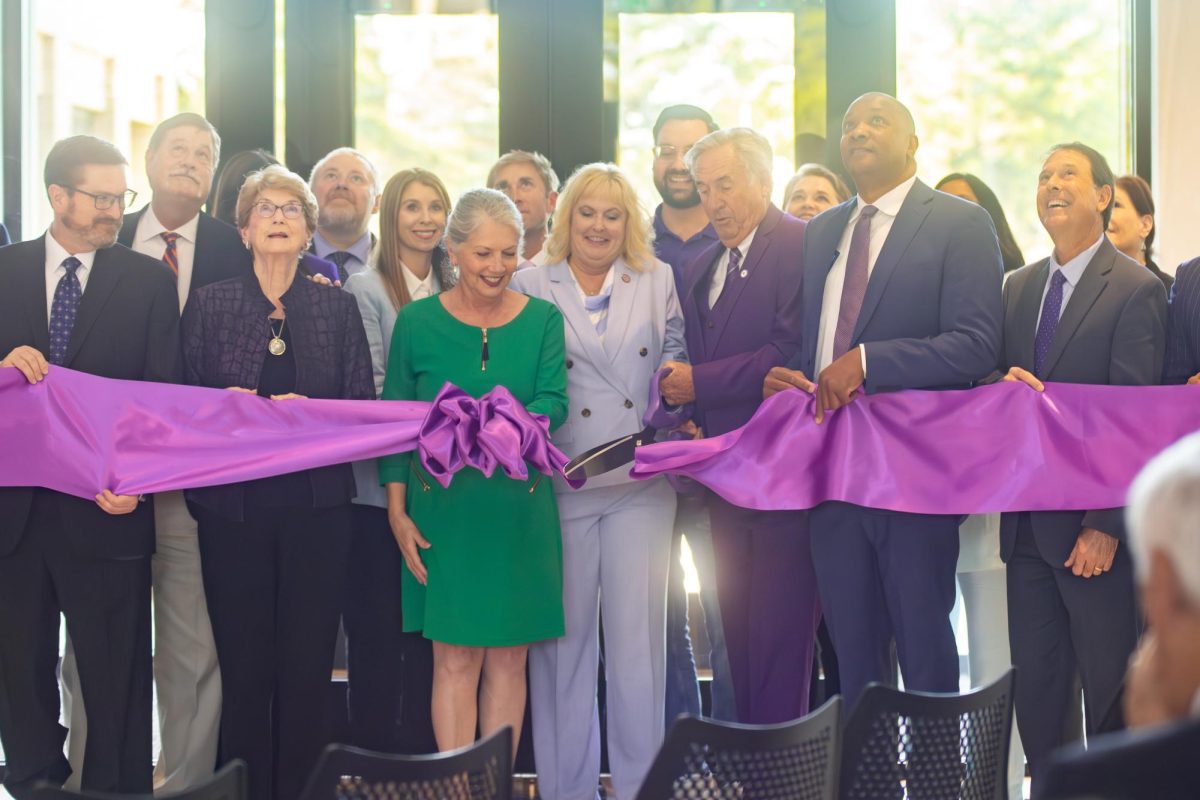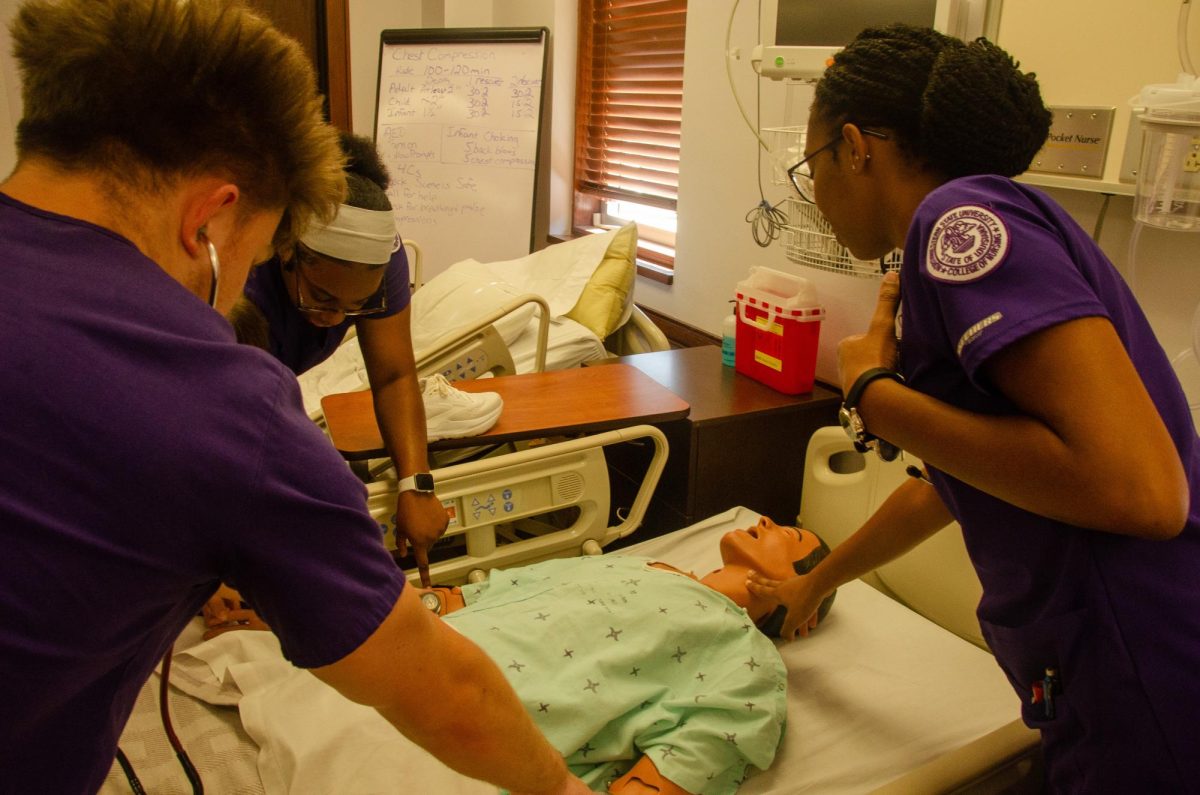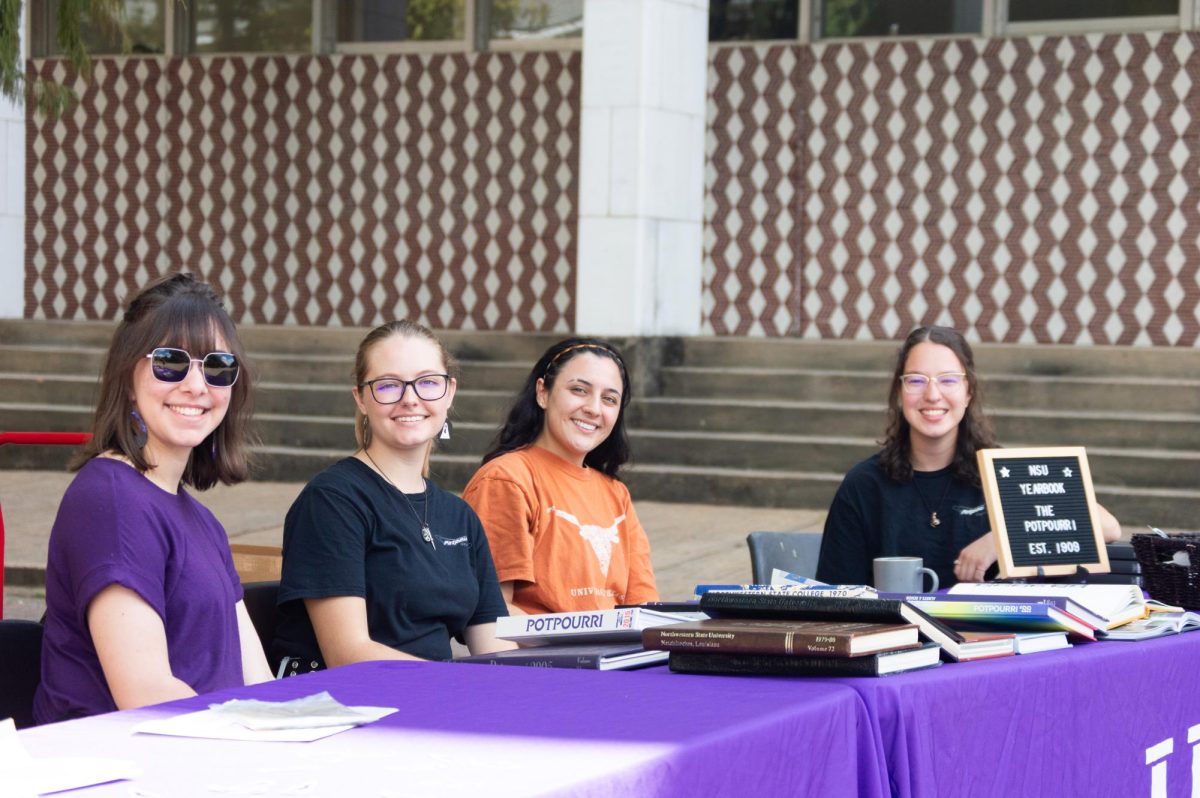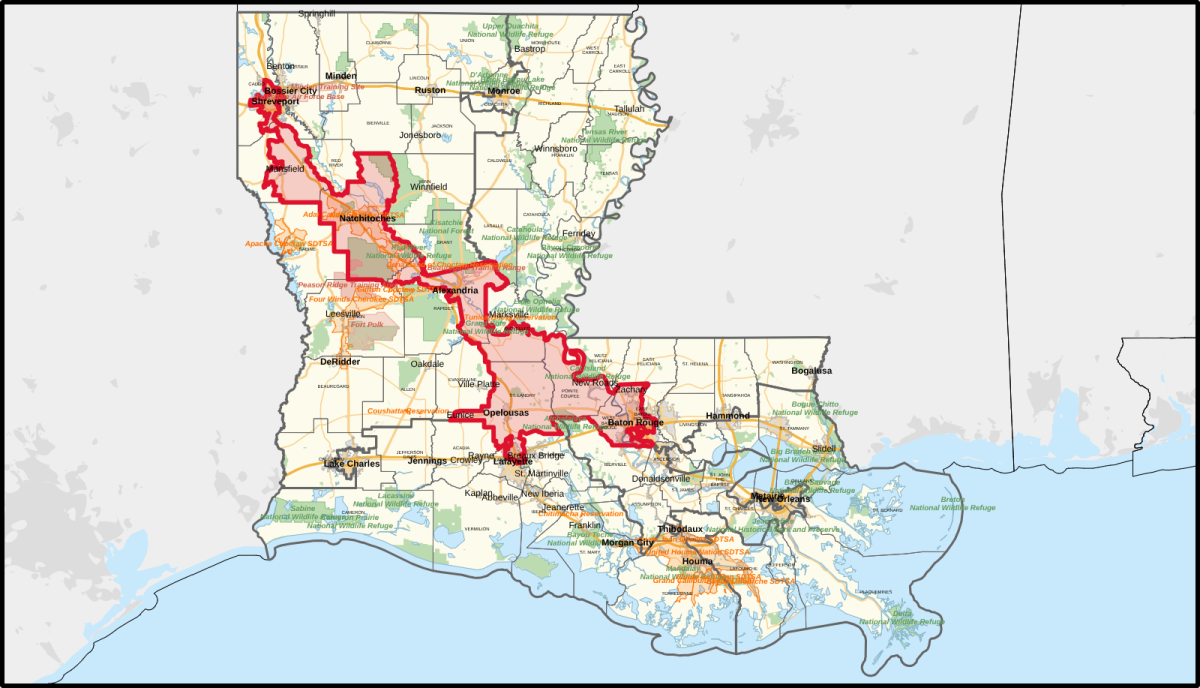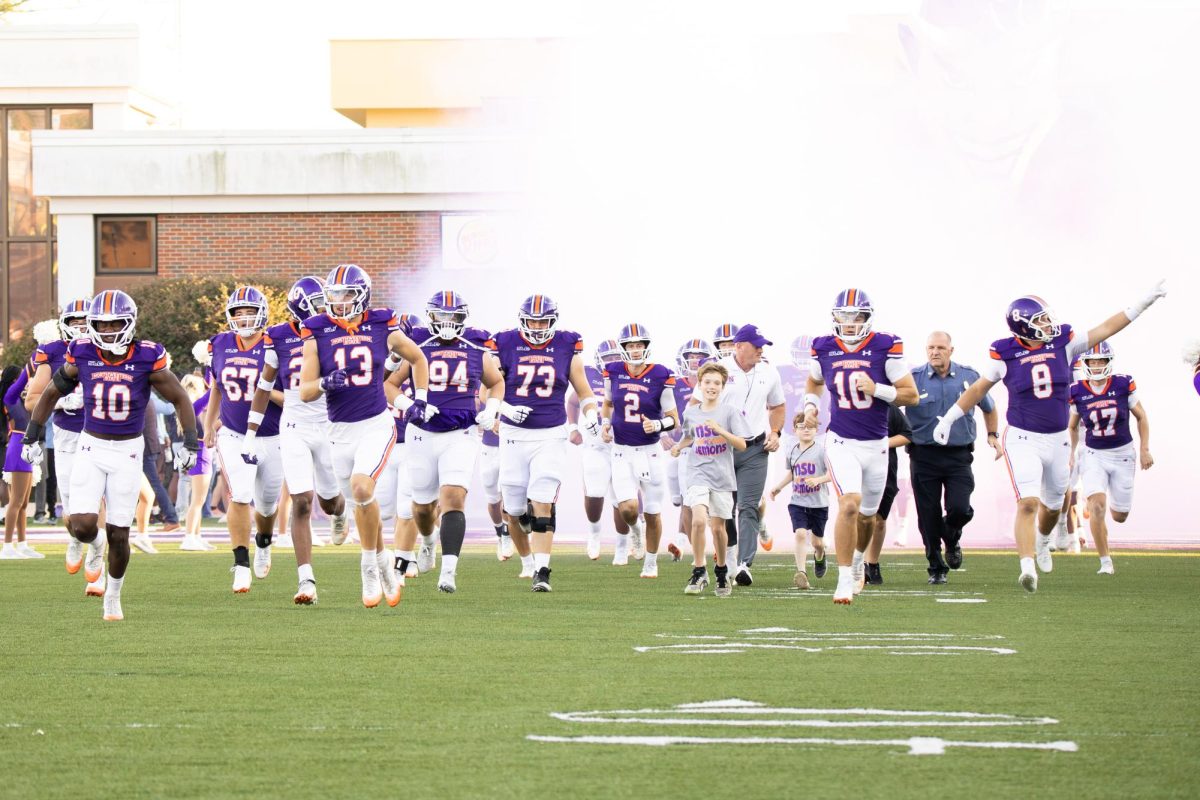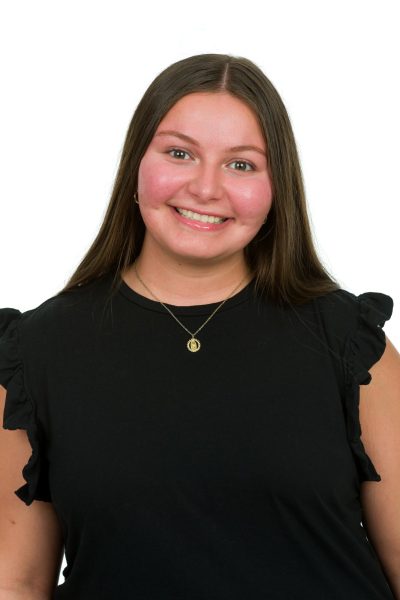Many college students struggle with their mental health, which can easily be pushed down or kept quiet. For that reason, it is important to know that resources are available to help, and any student can reach out.
Northwestern State University of Louisiana’s Counseling and Career Center interns are working toward their master’s degree while helping students to improve their mental health concerns.
The NSU Counseling and Career Center offers students the option of individual or group counseling, with licensed or intern counselors. All staff, including eight interns and four licensed counselors, specialize in clinical mental health to address a variety of possible concerns.
Claire Guillet, graduate counseling intern of the NSU Counseling and Career Center, led several group counseling sessions in the Fall 2023 semester which focused on student anxiety. Last semester, Guillet felt the Anxiety Group helped several students and was inspired to take part in the group once more for Spring 2024.
“It’s something that’s so needed for students because so many students struggle with anxiety and they don’t really know how to handle it,” Guillet said. “I think offering it in a group form can be less scary for them sometimes as opposed to going to the counseling center and seeing someone one on one.”
Guillet emphasized that the goal of the Anxiety Group is to create a space where students feel comfortable to openly speak and learn about their anxiety.
“We’re just trying to teach students more about their anxiety, kind of help them get a better understanding where it comes from what might trigger it for them and then help them learn how to deal with it and manage it, teach them coping skills for how they can deal with it,” Guillet said.
Guillet will be working alongside Traci Partridge, graduate intern of the NSU Counseling and Career Center, to co-lead the Anxiety Group this semester.
“It’s meant to be kind of psycho-educational because a lot of people who have anxiety don’t necessarily understand what they’re experiencing so it’s going more in depth of their anxiety,” Partridge said.
To participate in the Anxiety Group, students must complete an in-person, five-to-ten-minute screening prior to the first meeting. After that, the Anxiety Group will meet for a total of six weekly sessions.
Guillet explained that the group will use discussion prompts, which she and Partridge will then further research to adapt to the individuals of the group.
“We kind of want to go about it kind of similarly to the last group, we would have prompts or sheets and discuss it as a group, how they experience anxiety and what their specific triggers were, so we would use the prompt then kind of make it our own,” Guillet said.
The Anxiety Group can also be utilized as a bridge into individual counseling if students need it.
“In our last anxiety group, there were a couple people who we thought would benefit from more individual counseling, so we talked with them a little bit, so it’s definitely something we look for in the group session,” Guillet said.
Partridge explained that students already in individual counseling may participate in the Anxiety Group. Students who are only interested in the Anxiety Group are welcome as well.
“Some of the people in group counseling may have individual counseling as well, so they can do it together or they can just do group counseling, but individual counseling is available to any NSU student, completely free of charge, at any time,” Partridge said.
To begin individual counseling sessions, students must fill out a triage form which includes listing struggles they would like to talk about and their schedule availability. Once the form is complete, students will be put on a waitlist and contacted once a counselor is scheduled for them. If students feel the counselor they were scheduled with is not right for them, anyone is able to switch at any time.
If students have a preference of counselors prior to counseling, that can be expressed on the triage sheet. Students can express any preference such as gender, professional specialty or between licensed and intern counselors.
“The licensed counselors have all had to do the same thing we’re doing right now, the difference though is that we report to a supervisor,” Partridge said. “We report to her so she’s aware of our caseload and we get direction from a licensed counselor, so it’s not like we’re just freeballing and going, but we still have that support.”
All counseling interns meet with Rebecca Boone, director of the NSU Counseling and Career Center, weekly to review client cases they may need direction on. Boone is responsible for reviewing cases as well as making sure counseling interns meet the requirements of their internship.
Guillet and Partridge’s Anxiety Group will allow them to meet the requirement of hosting group counseling sessions.
“We have to have a certain amount of hours of direct contact with clients, so that can be with individual counseling or group counseling or any sort of screening that we have to do,” Guillet said.
Brandon Moore, graduate intern of the NSU Counseling and Career Center, described the requirements interns must meet to complete their internship program.
“This internship will fulfill the requirements for my Master of Arts in counseling with a concentration in clinical mental health counseling,” Moore said. “However, the internship also provides me with vital experiences that will serve as a foundation for my future practice as a licensed professional counselor.”
Interns must complete a specific number of direct hours, direct work with clients, including individual or group counseling sessions, outreach, or associated supervision with Boone. Requirements for indirect hours, including documentation, professional development or other office activities, must be met as well.
“For the clinical mental health counseling program, we must have one semester of practicum, 40 direct hours and 60 indirect hours, and then two semesters of internship, 120 direct hours and 180 indirect hours,” Moore said.
Along with the course, interns also attend classes weekly or bi-weekly, depending on their program, and complete assignments as dictated.
The Anxiety Group falls under an assignment gaining direct hours for Guillet and Partridge. Though the Anxiety Group is a requirement of the internship, the benefit to students gains precedence.
“We are required to do some group counseling, like the Anxiety Group, for assignments in the class and to gain experience,” Moore said. “It should be noted that the Anxiety Group is best viewed as a group counseling group instead of a project.”
Moore previously worked with Guillet on the Anxiety group for the Fall 2023 semester. He shared the main purpose of the group is to allow students to find they are not alone in their struggles with anxiety.
“Many students come to NSU with unaddressed or unresolved mental health concerns, with anxiety being one that I have frequently seen,” Moore said. “The Anxiety Group will serve as a way for those with anxiety to receive social support from their peers in a safe environment while receiving education on how to adequately address anxiety-related concerns.”
To take part in the Anxiety Group, students can reach out to Traci Partridge, [email protected], or Claire Guillet, [email protected].
To set up a counseling appointment students may contact the counselors by calling (318) 357-5621 or visiting room 305 in the Friedman Student Union Building.
24-hour crisis service is available, to speak to a counselor after office hours and on weekends call University Police at (318) 357-5431 and a counselor will be contacted for you.

